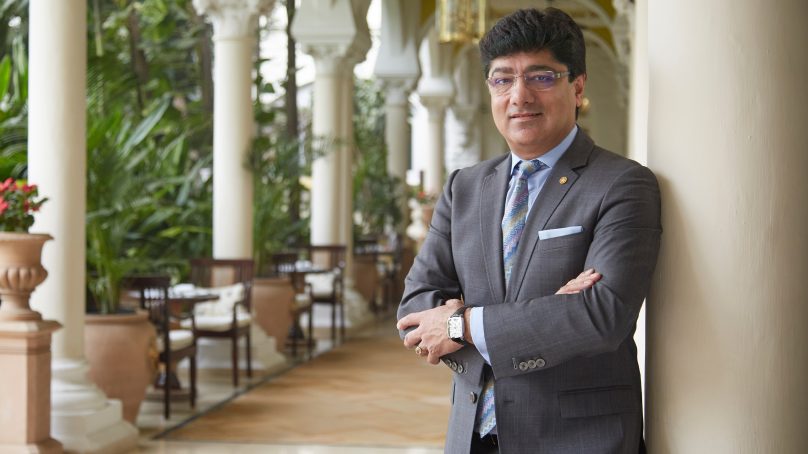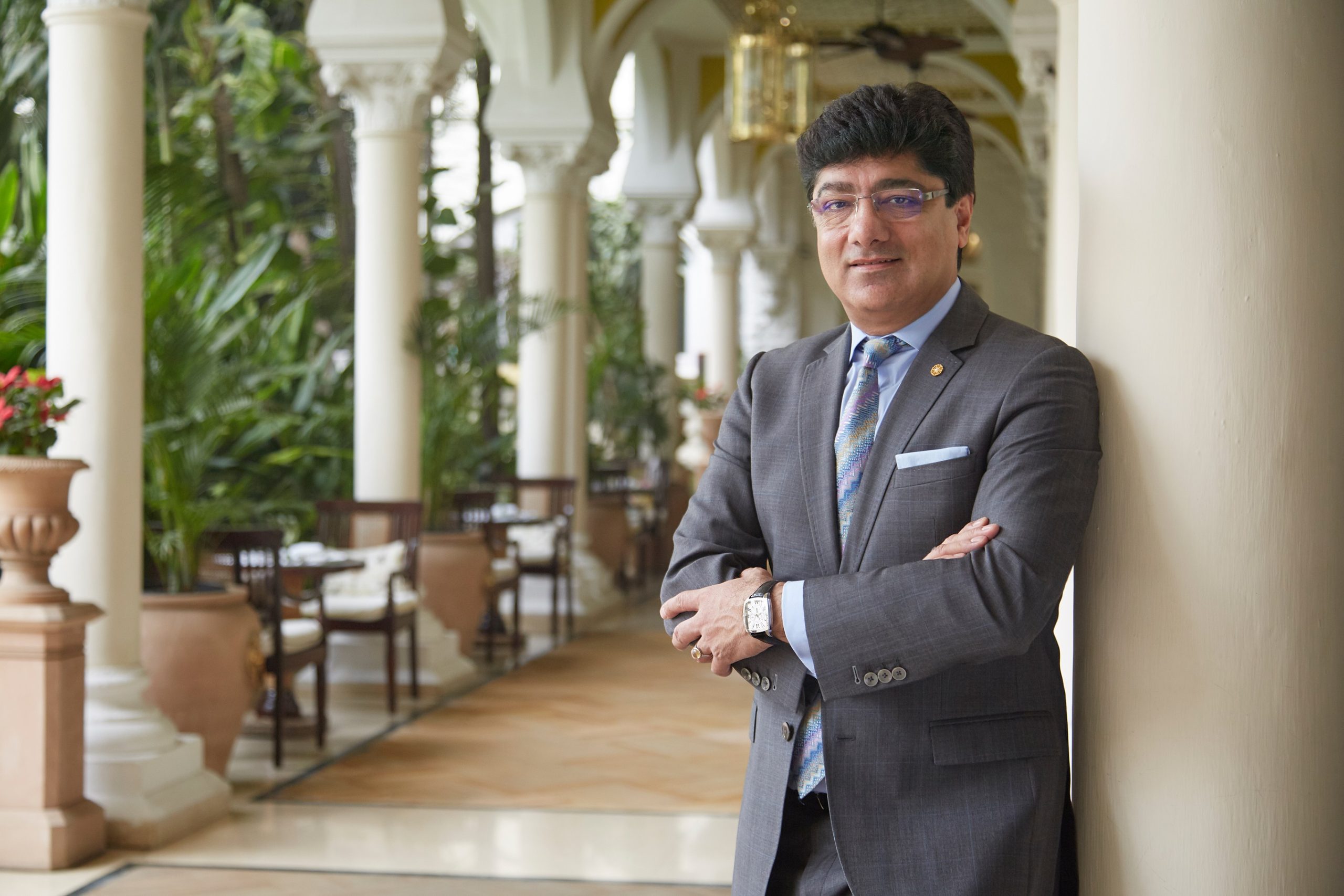In an exclusive interview with Puneet Chhatwal, managing director and CEO of IHCL, we explore the group’s focus on expanding in the Middle East, their latest developments and key trends in luxury hospitality.
Which Middle Eastern markets are you most interested in right now and why?
For international growth, we are focusing on markets with strong brand recall, significant Indian diaspora and enterprises, such as Southeast Asia, Middle East, UK and continental Europe. Consequently, these regions are top priorities for our expansion efforts. Our international pipeline aligns with these growth plans. Specifically, we will have upcoming hotel openings in the Indian Subcontinent, including Bhutan, Nepal and Dhaka, as well as in the Middle East and Germany.
What are the group’s latest developments in the Middle East?
IHCL has recently expanded its footprint in the Middle East with two Taj hotels in Bahrain. These include a luxury hotel in Hamala and a boutique resort in Downtown Seef, Manama, making IHCL the first Indian hospitality company to establish a presence there. With a portfolio of seven hotels in the Middle East, including four under development, these properties will further extend our regional presence. Therefore, we are strengthening our footprint in this key market. In the Middle East, IHCL operates three hotels in Dubai and has two projects underway in Riyadh and Makkah, KSA. Additionally, our two recent signings in Bahrain enhance our regional presence.
We plan to pursue further opportunities in other Middle Eastern markets, such as Doha in Qatar, as well as Muscat and Salalah in Oman. Thus, we aim to grow our presence in Dubai, the UAE, and KSA.
How do you assess the luxury hotel segment in the Middle East and what trends should we watch for?
The Middle East, particularly the GCC, is experiencing impressive growth in the tourism sector, supported by substantial investments in hospitality. The government’s focus on tourism as a key economic driver is reflected positively in the sector’s ongoing trends. Globally, the luxury travel market is projected to grow significantly, with the Middle East playing a crucial role. This growth pertains to both outbound and inbound travel, given the region’s high-quality luxury hospitality experiences. Furthermore, there is an increasing demand for eco-conscious, wellness-focused and highly personalized travel experiences among affluent consumers with substantial disposable incomes. This trend highlights the region’s growing influence in the luxury travel market.
Reflecting on your career, what has been the most rewarding aspect of your work in the hospitality industry?
IHCL, India’s largest hospitality company, and its iconic brand Taj represent the finest globally. It is part of the Tata Group, one of the most respected conglomerates worldwide. Consequently, the Tata Group is distinguished by its leadership, values and standards. Moreover, the opportunity to advance this legacy, guided by the Tata ethos, has been the most rewarding phase of my career.
How do you turn a hotel brand like Taj into a legacy?
Incorporated in 1899 by Tata Group’s founder Jamsetji Tata, IHCL opened its first hotel, The Taj Mahal Palace, in Mumbai in 1903. Consequently, this introduction showcased authentic Indian hospitality to the world.
Reflecting the iconic brand’s journey, the Taj Mahal Palace, Mumbai, celebrates its 120th anniversary, solidifying its historical significance in India’s hospitality landscape. Since then, IHCL’s Taj brand has pioneered numerous innovations, bringing a remarkable list of firsts to India and globally. For instance, it includes opening grand palaces, creating landmark tourism destinations and establishing iconic hotels worldwide.
Today, Taj boasts a unique portfolio, including grand palaces, iconic city hotels, safaris, spa resorts and service residences, with over 110 hotels across 13 countries. Moreover, we have spent years perfecting our craft, decades earning a reputation and a century building a unique culture. We term this Tajness, the essence of our hospitality that subtly influences all our behaviors.
What leadership qualities do you believe are essential for success in the hospitality industry?
Over the years, my career spanning multicultural settings and multiple continents has equipped me with diverse and valuable learnings. Consequently, these global experiences have shaped my leadership style, combining American marketing, European management and Asian emotional intelligence. Essential leadership qualities, such as a growth mindset and the ability to navigate uncertainty, are crucial. Additionally, a key enabler of growth is building strong relationship capital, which plays a pivotal role in successful business partnerships.
















